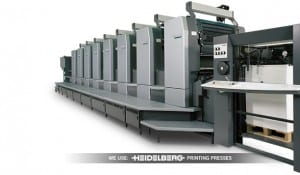 I love being around people who are as passionate about international business as I am. Sure, not many people get up at 6:30 am to write an e-book on Indian/U.S. collaborative teams (yes, you heard right – stay tuned for more news about the book), but I found camaraderie last week at Technology Association of Georgia’s International Business Society.
I love being around people who are as passionate about international business as I am. Sure, not many people get up at 6:30 am to write an e-book on Indian/U.S. collaborative teams (yes, you heard right – stay tuned for more news about the book), but I found camaraderie last week at Technology Association of Georgia’s International Business Society.
Check them out here: http://www.tagonline.org/TAG-International-Business.php
UPS was kind enough to host the event at their headquarters in Sandy Springs, GA and I wandered down in the evening to listen to the speaker. I had no idea what I was in for.
One thing I’ve seen time and time again in both my professional life and in the personal sphere is what I call the Deficit Model – the study of what’s wrong. Think about constructive criticism, performance reviews, the constant need to identify our weaknesses, and gap analyses. While value lies in all of these things, I don’t see enough of us studying what’s right. What are the root causes of our successes? What does it look like when a global team is at its best? How does it feel when you are using your strengths and talents?
As my husband puts it, why berate an eagle for not being a better swimmer? Why not help the eagle soar?
In my work I see a lot of people struggling with cultural differences, time zones, language, and more. I can’t count the number of times that a participant raised their hand and said, “Vicki, can you give me some examples of companies that got it right?”
Of course that’s a tricky question, because even companies that struggle through all of the above still may be doing things right.
Every so often, however, I hear a story that gives me inspiration and let’s me know what is possible. I heard such a story from the TAG IBS speaker, Thomas Topp, Senior Vice President of Heidelberg (www.heidelberg.com). I only wish I could tell it with the color, richness, and detail that he did. The event was moderated by Karl Pearl, Vice President at Aventis Systems, a key sponsor of the event (http://www.aventissystems.com/). Karl did an excellent job of asking just the right questions and raising poigniant issues for the audience the ponder.
First of all, who is Heidelberg?
Heidelberg, based out of Germany, creates high-end print items such as advertising, packaging labels, and print media. There is a 50 percent chance that if you’re holding something printed in your hand it’s a Heidelberg product. They not only make the products but they sell software to people who want to run a print shop. They even have a training academy where they give courses to their 200,000 customer base.
The company is big on R&D, with over 5000 patents and 5 percent of their sales spent on research and development. Heidelberg is a truly global company, with 81 percent of their sales recorded outside of Germany. They have 250 branches in 170 countries, and only ten percent of their customers are in the U.S.
What do they do right?
When Heidelberg started to expand outside of Germany, they developed a number of interesting best practices, many of which are still in place today. Here are just a few:
- They listened to their customers, and still do: The company recognized early on that the printing industry in emerging markets had a unique profile and set of needs. In mature markets, the focus of the print industry, especially in a down economy, is about efficiency and cutting costs through more efficient machines or processes. In emerging markets the industry is always growing. People don’t care about efficiency as much as getting up and running as fast as possible. Heidelberg’s consistent practice of staying in contact with the customer’s needs and localizing those needs allowed them to grow their business abroad relatively quickly.
- They use time zone differences to their advantage: People all over the world support Heidelberg customers. If someone in the U.S. calls from a 24 hour print shop at 2:00 am with a print emergency, someone in Germany can pick up the support call and help the customer. If someone in Europe calls in the middle of the night then someone in Asia can help. This is a great example of using the “follow the sun” cycle to serve your business rather than detract from it. Most of their machines are accessible though the internet and they can resolve customers’ problems from all over the globe.
- They established a solid brand and standards without ignoring local practices: As Mr. Topp shared with us, Heidelberg is very strict on their branding. In other words, their machinery is highly standardized as is the brand material and quality. They used the brand, however, to create a common culture while listening and learning from the subsidiaries they acquired, leaving much of their culture intact. They established global Human Resources systems but local HR practices. They used SAP worldwide but used it in the local languages of their branches. As Mr. Topp said, “We don’t push our German-ness onto the global business.”
- They addressed cultural differences and encouraged collaboration: What impressed me the most about the Heidelberg story was how the company brought people together to learn from each other as they were expanding the business and acquiring subsidiaries. They held global executive meetings where leaders came from all over the world to share best practices, address concerns, and generate ideas. They applied the same practices to other levels of personnel and created forums where people could listen and learn. The most amazing thing I heard was that Heidelberg held seven or eight of these global meetings over the course of two years! No wonder they are so successful. Can you imagine what global business would be like if more companies made this kind of investement?
I am sure that Mr. Topp shared more of his company’s amazing business practices that I cannot recall, as I was furiously writing my notes. But I invite you all to study what does work in your professional sphere, and what stories could inspire you to capitalize on your strengths even further. With so much bad news in the world today, it pays to think about what is going right sometimes.
Thank you to Mr. Thomas Topp of Heidelberg, and to the TAG International Business Society for a great evening! Comments on this blog are welcome. What is the root cause of your success?




salutations from over the world. informative post I will return for more.
Thanks for your comment! I’m glad you enjoyed the post and we look forward to seeing you in our blog space. Best wishes from Atlanta, Vicki